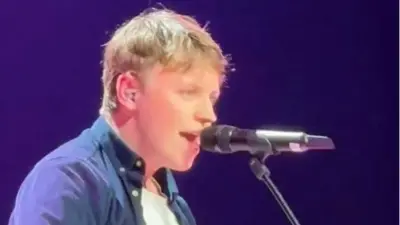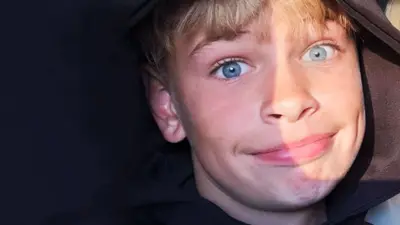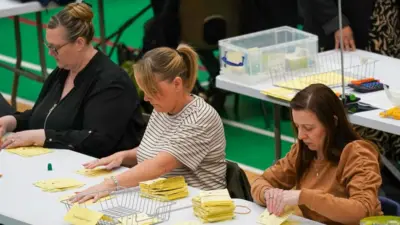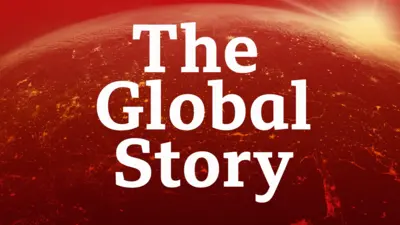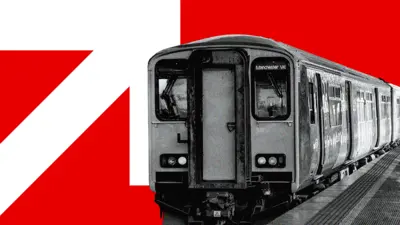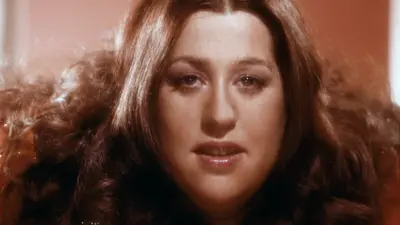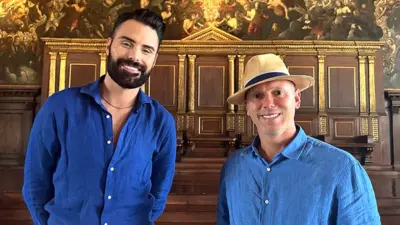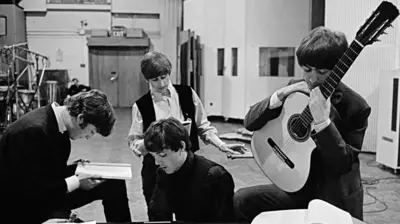We've updated our Privacy and Cookies Policy
We've made some important changes to our Privacy and Cookies Policy and we want you to know what this means for you and your data.
'The facial reconstruction that changed my life'
Image source, Jen Taylor
When Jen Taylor was diagnosed with bone cancer, she underwent 16 hours of surgery to remove her upper jaw, cheek, eye socket and an area almost all the way to the back of her skull - before rebuilding her face. She finds it hard to believe anyone could survive it.
"I had literally no symptoms - no pain or illness," Jen Taylor tells the BBC's Victoria Derbyshire programme, remembering back to when an unusual lump started to develop on her top jaw.
"I went to my dentist, who thought it was an abscess," she says.
It was two months before the 30-year-old found the cause, being diagnosed with bone cancer in August 2017, having attended hospital.
"I remember the consultant saying, 'Sorry,' many, many times, 'but it's cancer.'"
The chemotherapy began shortly after.
"My chemo was intense - Monday to Friday for three weeks in a row," she says.
"All my hair fell out in a week and I had a few scary things, like suspected heart attacks."
Image source, Jen Taylor
But then came treatment for the growth - 16 hours of surgery to remove her top jaw, and reconstruct it.
It was a major process.
"It's not just my jaw - it was behind my cheek up to my eye socket, the whole back of my nose, and also almost to the back of my skull," she says.
Doctors used bone from her shoulder blade and muscle from her back to fashion a new roof for her mouth.
They also connected the reconstructed area with veins in her neck to give her a blood supply.
Doctors think they removed all the cancer - although she is still having regular MRI scans.
Image source, Jen Taylor
But while the surgery restored her appearance, she was not able to eat, drink or talk initially.
"Psychologically I wasn't prepared at all," she says.
"I didn't have support apart from the doctors and nurses and there were days where I didn't know how the hell I was going to get better.
"I was pleased to be alive but there were times when I looked at myself in the mirror and found it so hard to deal with how I'd changed."
What did help, however, was that Jen documented her appearance over a period of two months - taking a photo every few days.
"If if it wasn't for the photos, I'd have despaired, thinking nothing was really improving," she says.
"What's been hard is the place where they took the cancer out has sunk quite a bit as the swelling has gone down - people ask me if I have a cleft palate."
Image source, Jen Taylor
After weeks of agony and frustration, Jen relearned how to chew but she may never be able to breathe through her nose again.
She is now awaiting dental implants, as she currently has only six top teeth, on the left-hand-side of her face.
She can see the progress she has made so far but still feels she does not "look normal".
"I still look at myself and think, 'Oh, there's that person with cancer,'" she says.
Jen is now going back to work, as an account manager, something she says she owes in part to the charity Macmillan Cancer Support.
"The support I got, whether it was talks, or Look Good Feel Better workshops, I knew I could get that help," she says.
"That familiarity was so important to me and the safe space they gave me."
Image source, Jen Taylor
Jen writes a blog - initially as a tool to keep family and friends updated on her progress but over time it has become much more than that.
"It's become an amazing thing, connecting so many people," she says.
Jen hopes to continue her recovery and looking back at old photos she says it is difficult to come to terms with where she started from.
"I can't believe anyone can survive it," she says. "I didn't look like a person."
Watch the BBC's Victoria Derbyshire programme on weekdays between 09:00 and 11:00 BST on BBC Two and the BBC News channel in the UK and on iPlayer afterwards.
Top Stories
Features & Analysis
Most read
Content is not available
